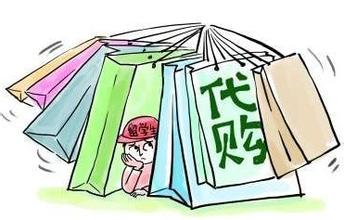A high demand for overseas luxury goods in China has laid the ground for Chinese students studying overseas to sell goods online to China.
国内对海外奢侈品的高需求为中国留学生提供了在网上将这些商品转售回国、做点小生意的机会。
A simple search on taobao.com shows numerous sellers listed as these "onsellers" or daigou, in Chinese.
在淘宝网上简单一搜索,结果显示许多卖家自称留学生"代购"。
They live across the world, mostly in Europe, North America and Asia, on-selling products like cosmetics, garments, luxury products and milk powder.
他们现居全球各地,大多分布在欧洲、北美洲、亚洲,转售化妆品、服装、奢侈品、奶粉等产品。
Another surprising platform in China for selling online is WeChat, unlike Taobao it is not traditionally a sales platform, but a social media platform.
国内另一个令人意外的网售平台是微信,与淘宝不同,微信原本不是销售平台,而是社交媒体平台。
Already connected to friends, family and schoolmates back home in China through WeChat, Chinese students abroad can use these connections to spread the product information.
中国留学生已通过微信与国内的亲友同学建立联系,他们可以利用这些联系发布商品信息。

Liu Xiaomin (not real name) is an exchange student in Italy's Universita Cattolica del Sacro Cuore and frequently sells products online.
刘晓敏(化名)是意大利圣心天主教大学的一名交换生,经常在网上代购商品。
She said that at least 3 of her 10 classmates from China who study with her buy cosmetics and luxuries to on-sell back home.
她表示,和她一起的10名留学生中至少有3人在做化妆品和奢侈品的代购。
Onselling has now become a trend among overseas students as many find it adds to life experience, widens social circles as well as increases income.
不少留学生发现代购可以增加生活体验、拓宽社交圈、增加收入,代购现已成为他们中的一种潮流。
Sending the products home must be done with discretion or the products can be taxed. To avoid this, Liu Xiaomin says the products must appear as if she personally owns them and the original company which helps send it directly to the customers.
将商品寄回国内必须谨慎,否则就需要缴税。为了避税,刘晓敏表示,必须商品看起来像是“自用”的,并且由公司直接寄回到客户手上。
And products can only be sent one at a time so the price will be kept under 5,000 yuan to avoid any tax.
此外,商品还要单件邮寄,且价值尽量控制在5000元以内,这样就可以不用缴税了。













